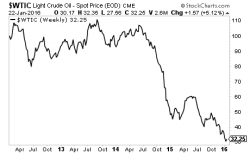Fruit, Vegetable Prices Soar In Canada: "If You Insist On Eating Tomatoes, You're Going To Pay For It"

Earlier this month, we documented the surging price of fresh produce in Canada, where the plunging loonie is creating a nightmare for shoppers in grocery aisles across the country.
Because Canada imports more than three quarters of its fresh fruits and vegetables, the inexorable decline of the Canadian dollar has driven up prices on everything from cucumbers to cauliflower to tomatoes, and as we showed via a series of tweets from incredulous supermarket shoppers, Canadians are not pleased.
“Three bucks. For a cucumber,” one shopper wrote.

